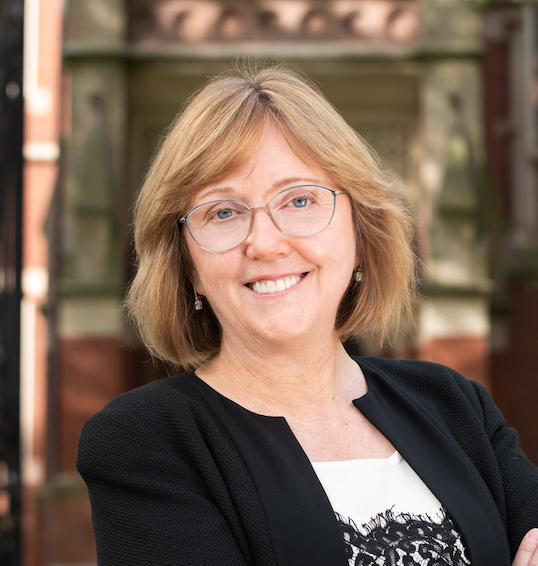Welcome to our special section, Thrive on Campus, devoted to covering the urgent issue of mental health among college and university students from all angles. If you are a college student, we invite you to apply to be an Editor-at-Large, or to simply contribute (please tag your pieces ThriveOnCampus). We welcome faculty, clinicians, and graduates to contribute as well. Read more here.
Families across America are gathering to celebrate the winter holidays, share meals and stories, and connect across the miles. College students home on break will bring with them not only new learning and new friends but, in many cases, new or deepened identities as activists. Add to the mix a volatile political climate, and the potential for cross-generational flashpoints is high. It doesn’t have to be.
The last few years have seen a dramatic rise in student activism. Growing income inequality has led this generation to understand that they might not achieve the same standard of living as their parents. The world is being destroyed by carbon emissions. Students have witnessed police violence — even murder — in person and on their cell phones. Yet critics, largely older and outside of academia, are calling students snowflakes.
Student activism isn’t new. American students have long protested wrongs they have identified, such as the war in Vietnam during the 1960s, apartheid in South Africa during the 1980s, and lack of research and resources for people with AIDS in the 1990s. During late adolescence and early adulthood, the college years, the psyche is particularly engaged with matters of justice, equality and fairness, as adolescents’ cognitive abilities enable them to examine moral problems for the first time. Yes, their voices might be loud — perhaps because they hold far less political power than their elders.
While many pundits characterize today’s undergraduates as alienated and entitled, fearful and fragile, my perspective is decidedly different. Facing challenges so profound that many adults have succumbed to defeatism or inertia, this generation of students has stepped forward — powerfully, and, yes, sometimes imperfectly — to forge principles of leadership and social change unique to their generation and their time.
I call the first principle “Leave no one behind.” Today’s students, and those coming close behind them, are among the most racially and ethnically diverse population cohort in modern American history. A recent Chronicle of Higher Education report described Gen Z, as they are called, as distinctly attentive to inclusion across identities. They aren’t likely to make the mistakes of the movements that preceded them, such as the anti-Vietnam War protests of my own generation, when movement leader Stokely Carmichael famously observed “The only position for women in [the movement] is prone.” They care not only about their own struggles but also about the struggles of others. They amplify the messages of others by practicing allyship — in which those with privilege step forward to actively support the voices of those without. For example, at my campus and others, marches on behalf of undocumented and DACA-mented students are supported by hundreds of others, many of whom have taken specific training to serve as Dreamer allies.
A second principle is “Leadership lives in all of us.” Much has been made of movements such as Occupy Wall Street or the anti-globalization protests against the World Bank as being “leaderless.” But the deficit model suggested by that characterization is inaccurate. As filmmaker and activist Bree Newsome told students at my college, “People often describe today’s movements as ‘leaderless’ — but it’s more accurate to describe them as ‘leader-full.’ Everyone can help lead the way to a more just society.” Indeed, Time magazine’s 2017 “person of the year” wasn’t an individual but a group: the “silence breakers” whose public testimony sparked a worldwide movement against sexual harassment and assault. At my campus, students are drawn to workshops on such topics as “Collaborative Leadership: How to Move a Group Forward With or Without a Title” and “Leading from Both the “I” and the “We.”
A third principle might be called “Audacity is the new normal.” Whether inspired by unprecedented societal advances or enraged by the head-in-the sand posture of older people with positional power, today’s emerging leaders have set their sights not on incremental advances but on audacious, transformative change. Black Lives Matter refers to its movement as “an ongoing fight to end State-sanctioned violence, liberate Black people, and end white supremacy forever.” The youth-led March for Our Lives movement, formed in the wake of the shooting at Florida’s Marjory Stoneman Douglas High School, has framed its goals as nothing less than A Peace Plan for a Safer America. Individuals like 16-year-old global warming protester Greta Thunberg, and student organizations like 350.org and Divest Ed that advocate for fossil fuel divestment, are challenging governments, colleges and universities not merely to reduce their carbon impact but to become forces for climate justice and economic equity.
We are at an inflection point when we need the kind of idealism that is emblematic of young people today. The challenges we face — environmental, economic, geopolitical, societal — require new voices and new principles. Instead of resisting youth resistance, we who are older can act affirmatively to engage and support the emerging leaders in our lives. We can help lower barriers to youth voting, from registration to absentee ballots. We can ask candidates at all levels what they offer as a vision for rising generations. We can be allies. Maybe most important, during this holiday season, we can ask the younger people in our lives what they see as the greatest challenges facing their generation — and what solutions they seek. We might just hear our younger selves in their answers.
Kathleen McCartney is a developmental psychologist and the president of Smith College.
Subscribe here for all the latest news on how you can keep Thriving.
More on Mental Health on Campus:
What Campus Mental Health Centers Are Doing to Keep Up With Student Need
If You’re a Student Who’s Struggling With Mental Health, These 7 Tips Will Help
The Hidden Stress of RAs in the Student Mental Health Crisis


